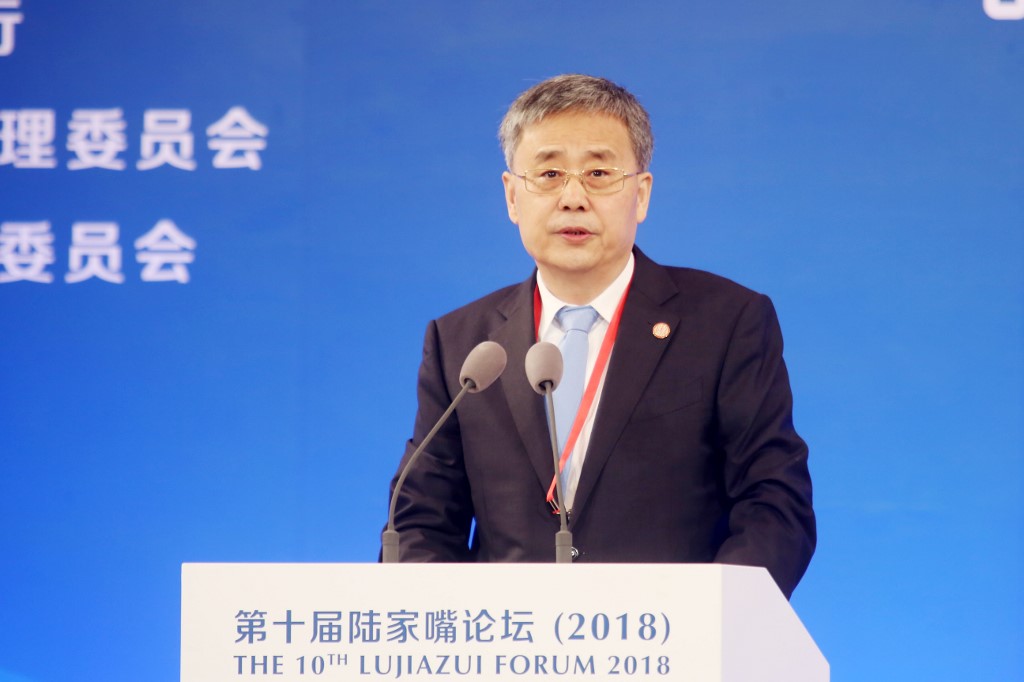(ATF) One of China’s top economic regulators has called for insurance funds to boost investments in medium and long-term corporate bonds. He has also said that insurers must lift their game.
Guo Shuqing, secretary of the People’s Bank of China party committee and chairman of the China Banking Insurance Regulatory Commission, said funds can to purchase enterprises’ long-term bonds, especially industries requiring huge amounts of medium- and long-term capital, such as telecommunications, transportation, and old and new infrastructure.
“The average duration of insurance funds is 13 years,” Guo Shuquing said. “The current balance of insurance funds is nearly 20 trillion yuan, while the balance of investment corporate bonds is only 2.2 trillion yuan, which has great potential.”
Guo made his remarks at the 12th Lujiazui Forum on June 18. Lujiazui is the centre of Shanghai’s finance district. Many high-ranking speakers have already made market moving statements.
‘Expand risk protection’
Guo Shuqing also said that insurers need to expand their coverage of risk protection and should increase the supply of business interruption insurance and export credit insurance products. He urged them to launch more insurance policies for weak links such as anti-epidemic disaster mitigation and issues affecting agriculture and rural areas.
“Support post-epidemic reconstruction, increase the strength of claims settlement, improve the efficiency of claims settlement, realise the full recovery of claims, be quicker and faster, so that affected individuals and enterprises can receive compensation funds as soon as possible and resume production and consumption,” he said, in comments reported by the China Finance Network news.
China’s top banking and insurance regulator pledged sustained efforts to spur faster economic recovery and ensured stable employment and development of businesses to cushion them from the impact of the coronavirus.
While many enterprises had been hit hard by the Covid-19 epidemic, Guo said they had promising business prospects and sound credit records.
He called for banks and the government to forge rescue plans for the firms, adding that China would strengthen the role of policy-based finance in counter-cyclical adjustments.
“This year, the loans arranged by policy banks will increase by nearly 1 trillion yuan (about $141 billion) over last year, with a larger scale of bonds issuance and additional funds.”
The China Banking and Insurance Regulatory Commission (CBIRC) plans to roll out measures to support the development of the capital market, he said, including adding new institutional investors, increasing the issuance of equity asset management products, encouraging new asset management subsidiaries to invest more in securities, as well as getting insurance companies to expanding investment in the capital market.
The central bank would not engage in a deluge of strong stimulus policies, let alone introducing monetisation of fiscal deficits or negative interest rates, he said, noting that China cherishes the use of normal monetary and fiscal policies.
But the PBoC would unwaveringly deepen reform and expand opening-up in the financial sector, plus strive to create a market-oriented, law-based and internationalised business environment, and encourage wider cooperation between Chinese and foreign institutions so as to deepen foreign participation in the Chinese market, Guo said.
By Chris Gill and Nadeem Xu
























